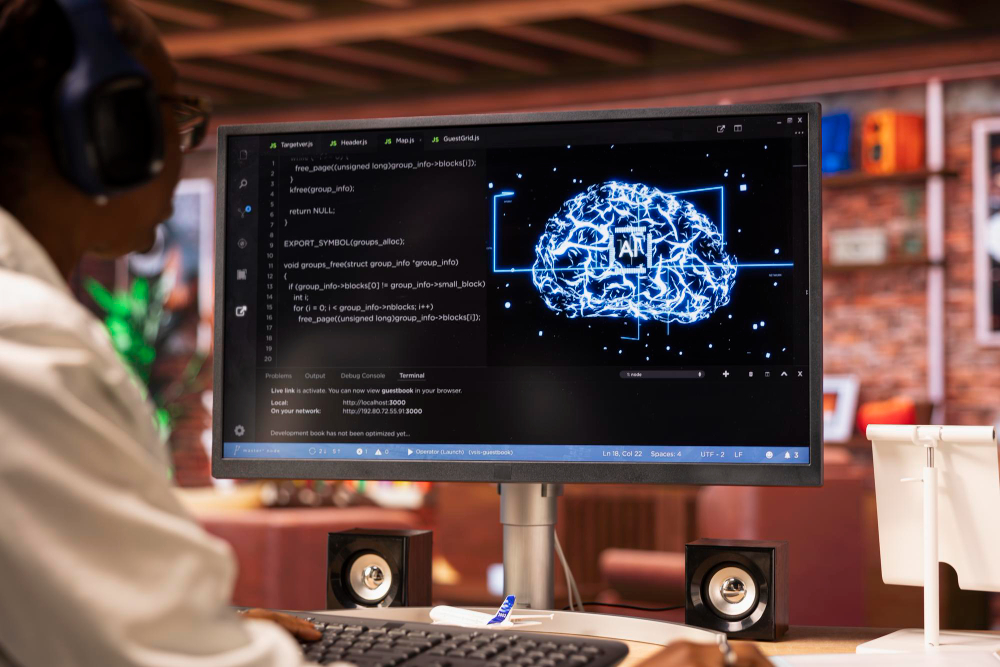Webflow in 2025 is more than a visual website builder—it’s a comprehensive platform for creating high-performing, scalable websites without touching code. With powerful design tools, a built-in CMS, and enterprise-grade hosting, Webflow empowers freelancers, agencies, and startups alike.
Whether you’re building a portfolio, blog, or eCommerce site, Webflow offers all the flexibility you need, backed by a user-friendly interface.
Why Webflow in 2025 Is Dominating the No-Code Market
🚀 Visual Development That Feels Like Coding
Webflow provides a powerful visual editor while generating clean HTML, CSS, and JavaScript behind the scenes. This allows creators to design pixel-perfect layouts with the precision of hand-coded sites—without actually coding.
📚 Native CMS for Dynamic Content
Instead of relying on third-party plugins, Webflow includes a built-in CMS that lets you manage dynamic content like blog posts, projects, team bios, or product listings. As a result, it’s easier to update and scale your content while maintaining a consistent design.
⚙️ Built-In SEO Features
Search engine visibility is critical in 2025. Fortunately, Webflow includes everything you need to optimize your site:
- Custom meta titles and descriptions
- Fast loading with image optimization and lazy loading
- Semantic HTML5 markup
- Integrated sitemap.xml and robots.txt
- Schema markup and Open Graph settings
Moreover, all these tools are available right from the editor—no plugins needed.
🔒 Secure and Scalable Hosting
Webflow’s AWS-backed infrastructure ensures your website is fast and secure. In addition, global CDN distribution improves performance for visitors worldwide, and SSL is enabled automatically for better security and trust.
New and Noteworthy Features of Webflow in 2025
✨ Component Reusability
Save and reuse elements like navigation bars, footers, and call-to-actions with global components. This improves workflow efficiency and ensures design consistency across your entire website.
🌍 Native Localization Support
For the first time, Webflow now includes multi-language support without relying on external integrations. As a result, it’s easier to target international audiences and improve SEO across regions.
🔄 Seamless Figma Integration
Designers can now import Figma files directly into Webflow. This feature streamlines collaboration between design and development teams, saving hours in the build process.
🛒 eCommerce-Friendly
Webflow in 2025 supports native eCommerce or external integrations like Shopify Buy Button and Foxy.io, making it suitable for small to mid-sized online stores.
Who Should Be Using Webflow in 2025?
- Freelancers: Build and launch client websites faster
- Agencies: Offer scalable, low-maintenance web solutions
- Startups: Launch MVPs without hiring a dev team
- Bloggers & creators: Enjoy full control over layout and SEO
- eCommerce brands: Use integrated or external store solutions
Webflow SEO Tips for 2025
To rank higher using Webflow in 2025, follow these best practices:
- Use your focus keyphrase—like “Webflow in 2025″—in your:
- Introduction
- Page title
- Meta description
- Subheadings
- Alt text for images
(e.g.,alt="Webflow CMS dashboard in 2025")
- Leverage Webflow’s built-in tools:
- Set meta titles/descriptions on each page
- Enable sitemap and robots.txt generation
- Use clean URL slugs with relevant keywords
- Improve Core Web Vitals:
- Use lazy loading
- Compress images with WebP
- Avoid layout shifts with structured containers
- Structure content semantically:
- Use
<section>,<main>,<header>tags - Organize content with H2 and H3 headings
- Keep paragraph lengths short and scannable
- Use
Final Thoughts
Webflow in 2025 is the ultimate no-code platform for creators who care about design, performance, and SEO. Whether you’re launching a new site or upgrading an old one, Webflow provides the tools to succeed—without the complexity of traditional coding.
If you want to build smarter, faster, and better, now is the perfect time to embrace Webflow.






